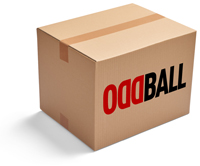Are you a business constantly wondering “How can I improve my website’s ranking?”. The answer is probably hidden in the hundreds of technical and creative steps you can take to improve your website’s SEO! Perhaps you’re working on a few of these already… Or maybe this is the first time you’ve seriously considered takinhttps://oddballmarketing.com.au/specialties/search-engine-optimisation/g Search Engine Optimisation into your own hands.
The fact is, if you have a website you want people to find it easily online – and that’s why boosting your website’s search ranking is a top priority. And the more work you put in, the more reward you get over time.
“The best place to hide a dead body is Page 2 of Google”
The trick with mastering your SEO is knowing where to invest your time to get the best results. For example, you want to avoid spending 6 months writing and managing a blog if your audience aren’t interested in reading it. So although your options for boosting SEO are huge, you simply need to find out which steps work best for your business (as not all will).
As a marketing agency who specialise in growing our clients’ presence online, we’ve permanently got our SEO radars on. So we’ve summarised a selection of the Top 10 best SEO moves you can make to gradually grow your website’s authority and ranking in search engines.
This list is not definitive, but it is designed to be a quick guide to get you started on the patient path to growing your SEO garden. The sooner you start the sooner your business can enjoy the fruits of your incremental efforts!
Quick SEO Glossary
Before we dig in, here’s a quick run through of key SEO-related terms:
SEO – Search Engine Optimisation
SERP – Search Engine Results Page (the page you see after conducting a search)
Crawling – Process search engines use to discover your web page content.
Indexing – Storing and organising of content found during crawling.
Organic – Content that’s earned a spot in search results, not using paid ads.
Query – The words you type into a search bar in Google, Bing, and Yahoo.
Ranking – Ordering search results by relevance to a search query i.e. I want to be ranked #1 on the first page of Google.
Domain Authority – A concept developed by Moz: a search engine ranking score that predicts a website’s ability to rank on SERPs, ranging from a score of 1 – 100. You want a high score.
Backlinks – Also known as “inbound links” from other websites that point to a page on your website.
Bounce rate – % of total visits that did not result in another action on your site.
URL – Uniform Resource Locators are the locations (web addresses) for individual pages of content.
Click Through Rate – The ratio of impressions to clicks on your URLs.
1. Outreach for Backlinks
Backlinks are super valuable when it comes to growing your SEO, but they can be hard to gain. A backlink is an external link on another website that links back to your website. To benefit your business, you can be proactive about creating these digital connections by creating a shortlist of relevant (but non-competitive) websites who do similar or complementary things to what you do. The next step is to approach these websites with a useful resource you have available on your website, such as an article, ebook, how to resource, or service page. Encourage your shortlist of websites to simply link to this resource as it may be beneficial to their audience. This step relies on communicating well other businesses to work toward a mutually beneficial outcome, so make sure your request is humble and friendly, with good intentions to help their audience with your content.
2. Content Marketing
Writing great content for your website is one of the best ways to optimise it for search engines. Original, researched, keyword-rich content is a favourite of search engines like Google, and will boost your rankings favourably. In addition to publishing quality content across the pages of your website, you can also consistently run a blog or news section to keep adding fresh content to each month. Google also likes this. However, don’t just “create a blog” for the sake of it.
There are 3 key reasons to invest in a blog for your business, check you tick at least one:
- Build Online Authority: become a thought leader in your field
- Build Brand Awareness: Specialist, niche services or brands who share free, firsthand advice
- SEO Strategy: Part of a well-planned SEO strategy
3. Social Media Engagement
To boost your SEO, you can create and regularly post engaging content on social media channels, with links back to your website. As part of your social media strategy, pick the 1-3 channels that best suit your business. For example, Instagram is designed for visual content and branding, so this is perfect for a product-focused business like a carpenter, but not for an accountant or lawyer. Facebook is designed for personal connection and communication through photos, videos or text on its platform, so this is great for the service industry like a beauty salon, cafe or restaurant but possibly not for a personalised business, such as a doctor’s surgery.
4. Business Profile in Directories
Depending on where your business is based, try to arrange a business profile on local listing sites. Business directories are usually regional, so if your audience are also within that same area this step has the dual benefit of growing your online presence and generating more leads from people searching on these listing sites. The goal is to ensure your business listing is well-written, succinct and informative and – most importantly – links back to your website. Get listed and linked in good quality, manually-reviewed business directories and local directories.
5. Pay Per Click Campaigns
Use the technical powers of Google Ads and Facebook Advertising to gain instant new visitors to your website, and only pay for those who click through. You get to decide the budget you spend and can turn the ads off at any time it suits. The goal is to constantly review and adjust the image and text in your ads to improve Click Through Rates and reduce the Cost Per Click.
6. Start Video Marketing
Get into the regular habit of capturing short videos of your work, results or inspiration to share with your audience and boost engagement. If your budget allows, you can also commission curated, branded video content that delivers information or ‘How To’ advice about your industry. In either case, plan your video content first with a clear target audience and goal for each video, and know where you will upload them to before filming that first frame. Some platforms need landscape video (this is the professional preference,), while others like Instagram Stories or TikTok need portrait video content.
7. Try Comment Marketing
This is a valuable part of a marketing strategy, as comment marketing gives insight into your industry, drives traffic to your site, boosts your authority, and you can get a little creative for the best results. Comment marketing is basically proactively finding social media comment streams, forums, popular articles or websites that promote something your business can relate to, such as a pain point or a common issue. Your goal is to create an account with that site, or connect it with your business’ social media, and comment insightfully with a link back to your website. The website Quora is a popular place to practice the art of comment marketing. Have a play.
8. Distribute Press Releases
Connecting with regional media is essential to gaining greater interest and engagement for your business. Writing and distributing a media release is a small amount of effort considering the wide-reaching awareness it can bring to your business. If the locals know who you are, there is an increased likelihood they will not only recommend you by word of mouth, but your business will be the first they search when they need a problem solved in your area. Write and distribute press releases to your local and industry media outlets and publications. The topic could be sharing news, product launches, community initiatives, or opinions about developments in your business related to the wider industry. For help writing a press release, hire a content writer to do the draft for you.
9. Experiment with Forum Marketing
Similar to comment marketing, this involves becoming an active member of a few popular online forums that are relevant to your industry and attract your target audience. You can keep this as simple as replying to questions on behalf of your business to show your brand as being knowledgeable. You can alternatively post professional opinions on questions posed by forum communities to start establishing your brand as having thought leadership qualities.
10. Mutual Link Exchanges
Secure valuable backlinks to your website by contacting companies in relevant industries and agree to mutually link to each other’s website – but only if that site provides value to your customers. If another website links to you, this is considered an external link to your site. Similarly, if you link out to another website from one of your blog articles for example, this is also considered an external link. A smart way to achieve this is to organise other companies, or industry bloggers, to produce guest content to publish on your blog and gradually grow the authority of your website with Google.
Ready to boost your website?
Business websites stuck on the second page of Google or beyond for their focus keyword phrases are often there not simply due to SEO, but because of poor marketing and PR in general. The steps we have outlined are not expensive, complicated or reserved for experts only – but getting an expert in definitely can speed up the process of boosting your site online. These 10 steps are also just a snapshot of how you can optimise your website online using SEO techniques. There may be some techniques better suited to your kind of business, and we can help to identify these for you.






